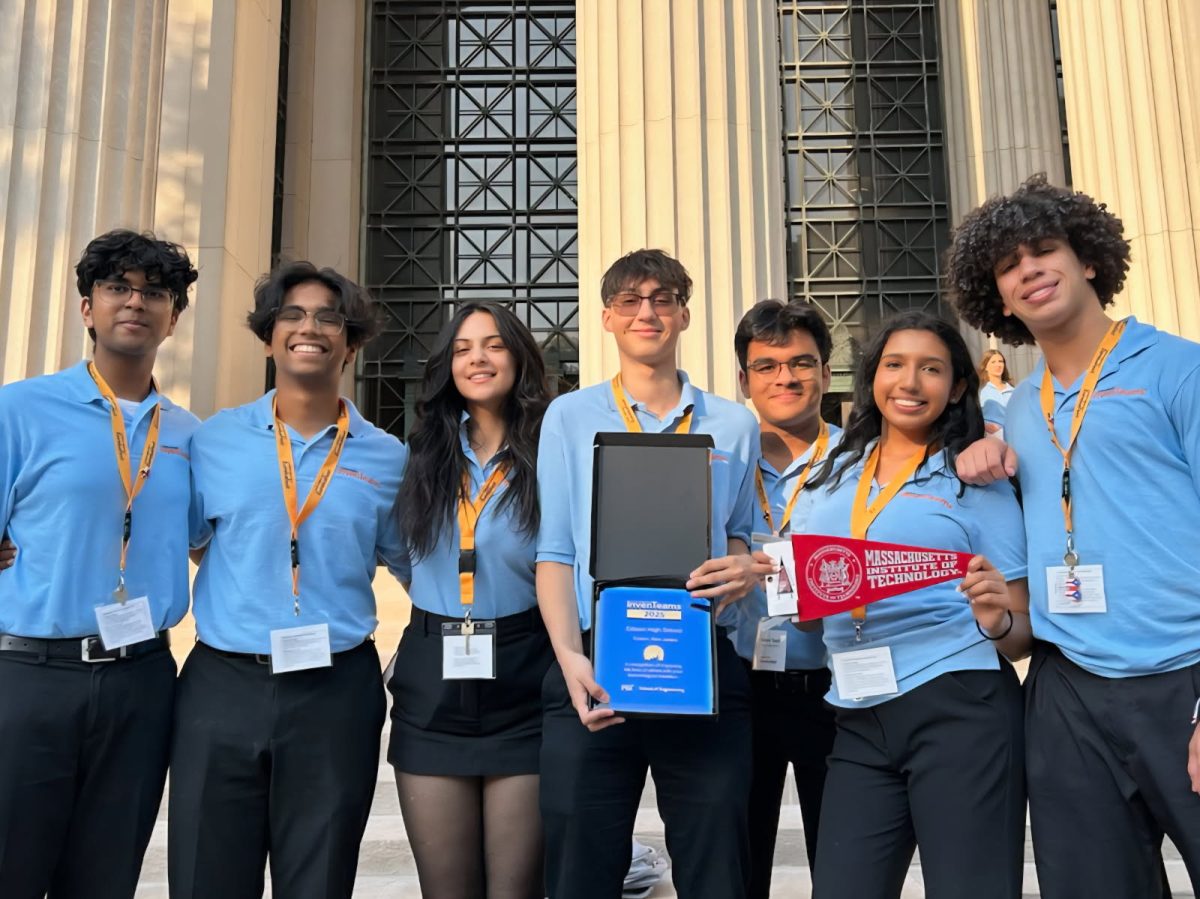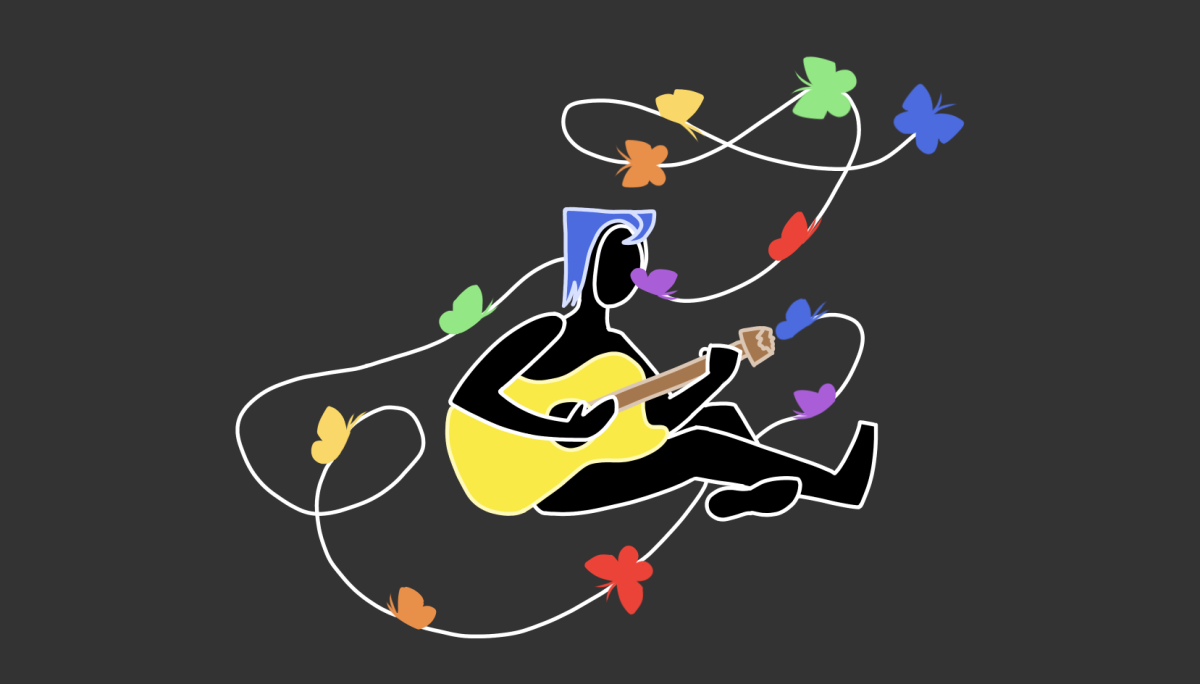Are you “vertically challenged”?
The English language extends far beyond the Edison High classroom. Linguistics, the study of language, seems as mundane and irrelevant to life as writing a 1,000 word essay on why an author uses the word “spaghetti” in the sentence, “I ate spaghetti for dinner.” The rise of new slang, such as Generation Alpha’s “skibidi” and “mewing,” has become a topic of interest amongst linguists. These new words aren’t the only ones in today’s current lexicon, however; the rise of using words in such a way to greatly differ from their definitions is a common pattern throughout the evolution of the English language. But what does this have to do with modern-day slang?
Euphemisms are words that tend to indirectly reference an emotionally charged topic. “Vertically challenged” became a humorous way to refer to people who were short, while being “laid off” from your job during COVID-19 was used as a euphemism, and a much better way of telling someone that they were fired.
The word “acoustic” quickly rose in popularity within the autistic/neurodivergent community as a way to tease each other. Now, as people outside of this group began claiming this word as modern slang, acoustic became a common insult to replace the word “stupid,” or the discriminatory “slow.” “Restarted” quickly soon followed as an “amusing” replacement for the ableist r-slur. The every-day word has gone through a semantic shift, or a widening of definition. This pattern has become more common in our everyday lives. And despite others words’ intention to “soften the blow,” they have become nearly as harmful as direct statements. The euphemism has developed into an insult as harsh, if not more harsh than the original slur. Claiming these euphemisms, once just a joke, have stigmatized normal human experiences. Being autistic has once again become an insult as these words become more common in the Generation Z and Generation Alpha vernacular.
Stigma towards autism results in not just a poor understanding in the neurological and developmental disorder, but negative impacts on the autistic person themself. Autism is commonly seen as a liability, the disorder assumed to result in a “low-functioning” individual. When people, especially employers, see a “liability,” they are much less likely to treat them as equally as everyone else; many tend to belittle the autistic person, or even infantilize them. However, the disorder is a spectrum; there is no “low” or “high” functioning, as everyone has different symptoms that result in different support needs.
On social media, indirectly naming a sensitive topic has become more commonplace, especially as a gradual mental health awareness campaign continues. “Sewer slide” had quickly replaced the word suicide, and the phrase self-harm has been reduced to “s/h.” The phrase “this is my thirteenth reason” had come to replace ideations of committing suicide, and the popular acronym “KMS.” Some argue that the switch was simply to favor the algorithms of social media apps, or to consider those who are “oversensitive,” but the increased care in discussing triggering topics has positively influenced those currently in difficult experiences.
Neurotypicals—people who have medically “standard” brain developments and functions—that those who advocate against the words “acoustic” and “restarted,” as well as other such euphemisms and sensors, are oversensitive, and “do not understand what a joke is.” This claim undermines the seriousness of mental illness and disorders. An individual is not “oversensitive” to phrases or situations that trigger them; it’s not an overreaction, and yet many believe it is. A lack of understanding is key in this behavior, so the destigmatization of mental illness and neurodivergence would reduce “under-sensitivity.”
Word choice is once again a significant part of language, and thinking before speaking—a phrase many people grew up with—has never been more important today. Social media trends are often senseless yet brief, so there is no harm in bypassing this one. Being more careful with your words in conversation can influence others to do the same.
People aren’t guitars, so why should we call them acoustic? Is it really just a joke?
Categories:
People Aren’t Guitars, So Why Are We Calling Them Acoustic?
June 7, 2024
The word “acoustic” has evolved as slang to refer to autism.
Donate to The Eagle's Eye
$0
$500
Contributed
Our Goal
Your donation will support the student journalists of Edison High School. Your contribution will allow us to purchase equipment and cover our annual website hosting costs.
More to Discover
About the Contributor

GABRIELLE DHARMAWAN ‘25, Editor-in-Chief
Gabrielle Dharmawan is a senior working as the features editor-in-chief of The Eagle’s Eye. They also work in the illustration team and as a staff writer. In addition to the newspaper, they are a proud member of the orchestra, Writer’s Wings as Editor-in-Chief, and the EHS STEM Academy. Other hobbies Gabrielle enjoys include crocheting and reading.
















































































